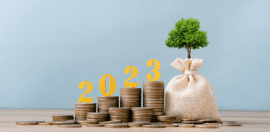UNDP setting the standard for SDG-enabling investment

17 October 2019 at 8:38 am
Rosemary Addis and Fabienne Michaux break down the draft SDG Impact Practice Standards and call on Australians to have their say during the consultation period.
The recent McKinsey & Co sustainability reporting survey of investors and corporates heralds a step change in the way non-financial matters are managed and reported; a change McKinsey says executives and board members must understand.
This questioning of current practice is growing too loud to ignore with over 80 per cent of investors surveyed indicating they would support regulatory change to drive greater consistency and comparability.
The United Nations Development Programme (UNDP) which plays a key role in stewardship for the sustainable development goals (SDGs) has also heard the call from investors for the need to authenticate practice.
As a contribution to the Impact Management Project, UNDP has released for comment and consultation a new set of standards to guide private fund managers toward investments that drive that consistency and comparability in SDG-enabling investment.
These SDG Impact Practice Standards for Private Equity Funds were developed by SDG Impact, a flagship UNDP initiative aimed at advancing transparency and mobilising private capital in support of sustainable, climate-friendly growth.
There’s been active involvement from leaders in the Australian market. Fabienne Michaux, co-chair of the Australian Advisory Board on Impact Investing and the Data and Reporting Technical Working Group of the Australian Sustainable Finance Initiative, is holding the pen, and Rosemary Addis, impact strategist and Global Steering Group for Impact Investing Trustee, shaping strategy for SDG Impact.
SDG Impact director Elizabeth Boggs Davidsen said, “Private-sector enthusiasm for the SDGs is strong and growing – but translating interest into action has been challenging.”
A big part of the SDG story is scale. We need to significantly change the pace of implementation to make progress for 2030. Mobilising an additional 5 per cent of global assets under management each year (approximately US$6 trillion) in ways that take us closer to the SDGs is a realistic goal.
SDG Impact is focused on best practices to inform goal setting, data collection, impact management and measurement. The UNDP Practice Standards for Private Equity provide practical guide posts that make it easier for the private sector to operationalise the SDGs and shorten the runway from interest to adopting good impact practice. They will be followed shortly with standards for SDG bonds and enterprises.
“This is a step change from using the SDGs to map existing activities to a more integrated practice capable of directing investment toward clear SDG aligned objectives and integrating impact across the value chain,” Addis said.
“The SDG Impact Practice Standards are a concrete roadmap for investors to meet any and all of the sets of principles in the market, for Principles for Responsible Investment to the International Finance Corporation, GIIN Characteristics and UN Environment Program Finance Initiative.”
The standards facilitate implementation of the principles already in place and inform performance reporting and benchmarking. The standards are designed to be useful for the broader market, informing the questions to ask to make assessments of good practice and recognise the growing trend towards analysing businesses and investments based on the SDGs.
“There’s a concrete value proposition,” Michaux said.
“The evidence is in – companies that embed strong sustainability practice significantly outperform their counterparts over the long-term and investors are crying out for more consistent and comparable data points to make informed decisions. At the same time, community expectations are also shifting with increasing demand for transparency about the positive and negative economic, social and environmental impacts companies and investments are having on people and the planet.”
To recognise and encourage good practice, the UNDP standards include a tiered certification framework, to acknowledge and differentiate good practice in the market, with potential for a UNDP SDG Impact Seal that would be awarded for good practice.
“We encourage the Australian market to contribute to this process and help shape the norms that will avoid impact washing and significantly accelerate the pace of implementation,” Addis said.
SDG Impact Standards and Certification Framework are available for download and feedback until 4 December. For more information see: SDG Impact Steering Group and UNDP SDG Impact website.
About the UN sustainable development goals
In December 2015 all 193 member states of the United Nations adopted 17 interrelated sustainable development goals. Together they provide a universal framework for addressing some of the world’s most pressing social and environmental challenges. One of the purposes for the SDGs is to guide investors and companies toward areas of positive, measurable impact, given the vital role the private sector plays in achieving greater innovation, efficiency, and scale in development objectives.
About SDG Impact:
SDG Impact is an initiative of the United Nations Development Programme focused on eliminating barriers and driving integrity for SDG-enabling investment at scale. SDG Impact’s vision is a world in which all capital flows advance the United Nations Sustainable Development Goals (SDGs). Its mission is to provide investors and business with the clarity, insights and tools required to support and authenticate their contribution towards achieving these goals.
SDG Impact has three pillars:
- Impact management: Practice standards that bring clarity to what SDG-enabling investment is and provide tools to support investor and business contribution to the United Nations sustainable development goals. On-line education and training will further support investor and business contributions and certification with an SDG Impact Seal will authenticate SDG-enabling practice.
- Impact intelligence: Country level data that provides insights into SDG-enabling investment opportunities, highlighting areas where development need, political and policy priority and investor appetite and activity coalesce.
- Impact facilitation: Will utilise a network that spans 170 countries to connect investors, business and policy makers to provide insight and tools that translate opportunities to action and facilitate rich policy dialogue.
About the authors: Rosemary Addis is one of the world’s preeminent impact pioneers. Her global portfolio includes trustee of the Global Steering Group for Impact Investment and senior advisor to the United Nations Development Programme’s SDG Impact. Her 30-plus years track record spans sectors, disciplines and geographies from a global legal career to the first social innovation strategist for the Australian government and member of the Social Impact Investment Taskforce established under the UK presidency of the G8, and founding chair of the Australian Advisory Board on Impact Investing and Impact Investing Australia. She was ranked among Australia’s 100 Women of Influence by the AFR for achievements in innovation (2015) and among the top thought leaders in finance as finalist for Women in Finance Thought leader of the Year (2017).
Fabienne Michaux is currently working with the United Nations Development Programme to develop global impact practice standards for SDG-enabling investments. She is also a part-time professor of practice (finance) at Deakin Business School, interim co-chair of the Australian Advisory Board on Impact Investing (AAB), co-chair of the Australian Sustainable Finance Initiative’s Technical Working Group 3 on more informed decisions (disclosures, standards and metrics), and a non-executive director of Housing Choices Australia Ltd and The Song Room.
She previously enjoyed a 30-year executive career, including 22 years with S&P Global Ratings. She has held numerous board positions spanning the arts, education, housing and financial services sectors.
Addis and Michaux are advising the United Nations Development Programme on their SDG Impact initiative.
They can be contacted at rosemary.addis@impactstrategist.com and fabiennemichaux6@gmail.com








